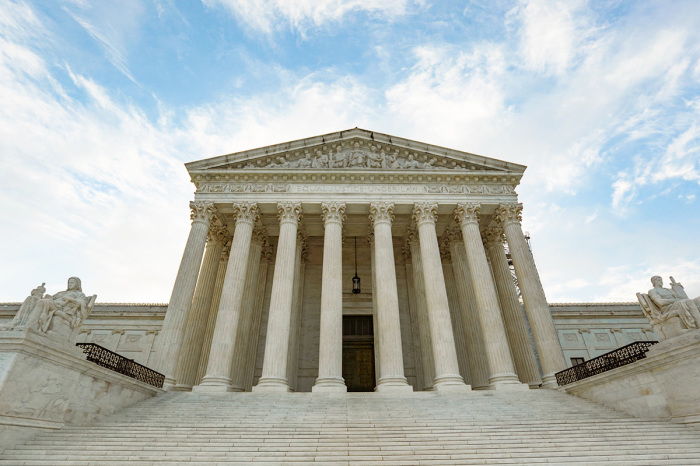
The U.S. Supreme Court will determine if states can ban licensed professionals from engaging in therapy with minors seeking to change their sexual orientation or help gender confused children accept their sex.
The Supreme Court heard oral arguments on Tuesday morning in the case of Kaley Chiles v. Patty Salazar, executive director of the Colorado Department of Regulatory Agencies, et al.
At issue was a challenge to a Colorado law by a Christian therapist named Kaley Chiles, who argued that the measure violates her rights under the First Amendment of the U.S. Constitution.
James Campbell of the Alliance Defending Freedom argued the case on behalf of Chiles, arguing that Colorado’s ban wrongfully censors “widely held views on debated moral, religious and scientific questions.”
“Aside from this law and recent ones like it, Colorado hasn’t identified any similar viewpoint-based bans on counseling,” Campbell said in his opening comments. “These laws are historic outliers.”
Justice Sonia Sotomayor questioned the purpose of the legal challenge, saying that there had been “six years of no enforcement” of the law, as no one had been prosecuted under the ban.
Campbell countered that the ban had a “credible threat of enforcement,” noting that recently “there have been anonymous complaints filed against” Chiles and that “those complaints are now being investigated by the state of Colorado for allegations that she’s violating” the ban.
When asked by Justice Ketanji Brown Jackson about the evidence against such therapy, Campbell countered that the studies cited by Colorado officials were “flawed” because they lumped together discussion-based approach with physical measures like electroshock therapy.
Campbell said that Chiles’ actions involved speech only and thus were protected by the First Amendment, being different from “the medical context” of prescribing medication or undergoing a surgery.
Colorado Solicitor General Shannon Stevenson defended the state law, saying that “it prohibits licensed professionals from performing one specific treatment, because that treatment does not work and carries great risk of harm.”
“The law applies only to treatments, that is, only when a licensed professional is delivering clinical care to an individual patient,” Stevenson continued. “Because this law governs only treatments, it does not interfere with any First Amendment interests.”
Justice Clarence Thomas asked if a non-professional counselor were allowed to perform the therapy, with Stevenson replying that religious ministries and “life coaches” could perform it.
Stevenson noted that these groups “are not licensed by the state” and therefore have “different expectations” from a state-licensed professional therapist and are held to “a certain standard of care.”
In 2019, Colorado passed the Minor Conversion Therapy Law, which prohibited “gay conversion therapy” for minors, after multiple similar bills had failed in previous legislative sessions.
Daniel Ramos, executive director of the LGBT advocacy group One Colorado, released a statement at the time claiming that it was a “significant step in protecting our LGBTQ youth.”
“No young person should ever be shamed by a mental health professional into thinking that who they are is wrong. Mental health care should be ethical and affirming for all people — including LGBTQ young people,” stated Ramos.
“I applaud the Colorado General Assembly for their bipartisan support of this measure. Protecting our LGBTQ youth is not a partisan issue.”
Chiles filed a legal challenge against the law in September 2022, claiming that it violated the Free Speech Clause and Free Exercise Clause of the First Amendment of the Constitution.
A three-judge panel of the 10th U.S. Circuit Court of Appeals ruled 2-1 against Chiles in September of last year, upholding an earlier district ruling in favor of the state ban.
Circuit Judge Veronica Rossman, a Biden appointee, wrote in the majority opinion that “Chiles had not met her burden of showing a likelihood of success on the merits of her First Amendment free speech and free exercise claims.”
“By regulating which treatments Ms. Chiles may perform in her role as a licensed professional counselor, Colorado is not restricting Ms. Chiles’ freedom of expression,” she added in the ruling. “In other words, Ms. Chiles’ First Amendment right to freedom of speech is implicated under the MCTL, but it is not abridged.”
Circuit Judge Harris Hartz, a George W. Bush appointee, dissented, arguing that the majority failed to explain why “talk therapy is to be afforded lesser First Amendment protection than speech in general.”
“Is the majority stating that professional speech should be treated differently under the First Amendment from identical speech by a nonprofessional? That would fly in the face of what the Supreme Court has recently told us,” Hartz wrote.
In March, the Supreme Court released an orders list in which they agreed to hear oral arguments in the case.







